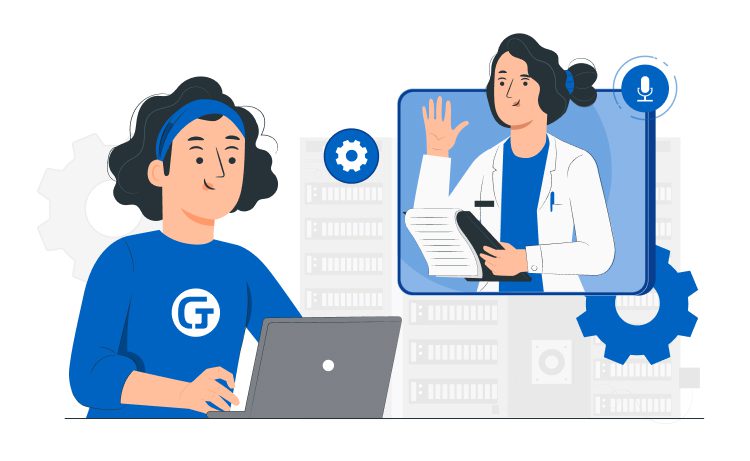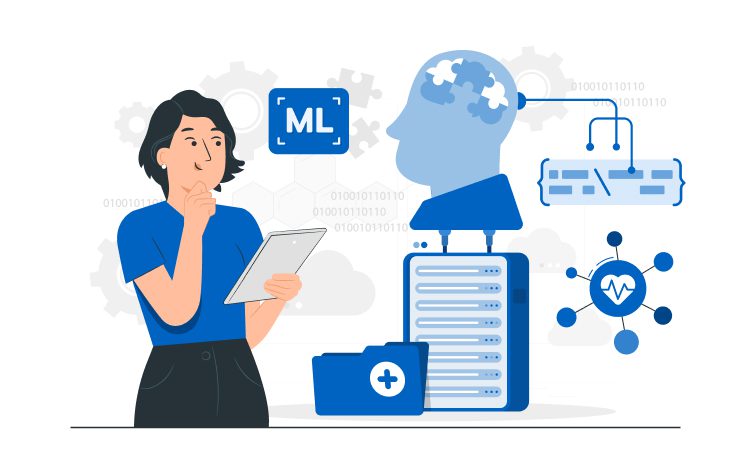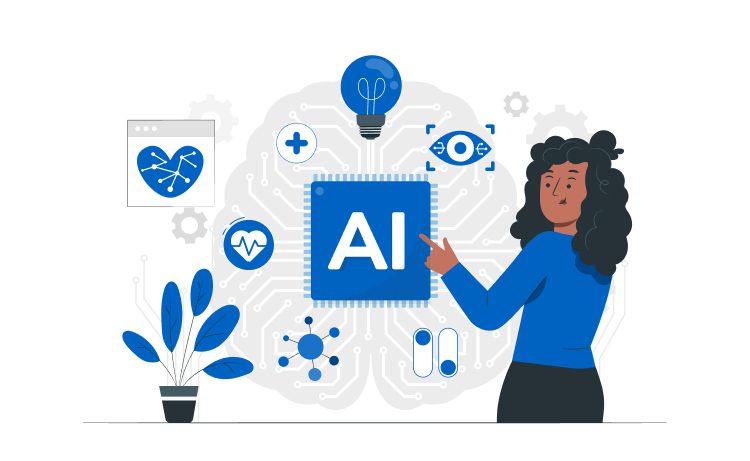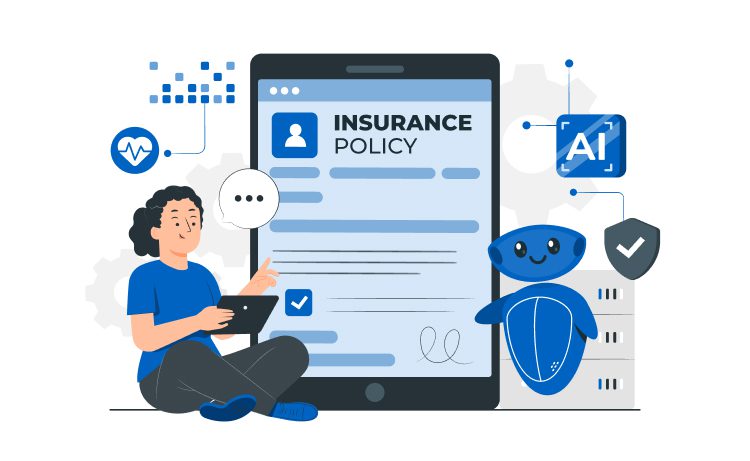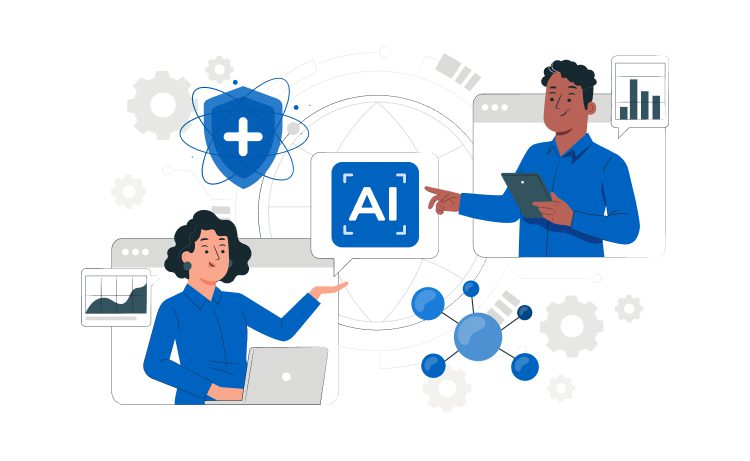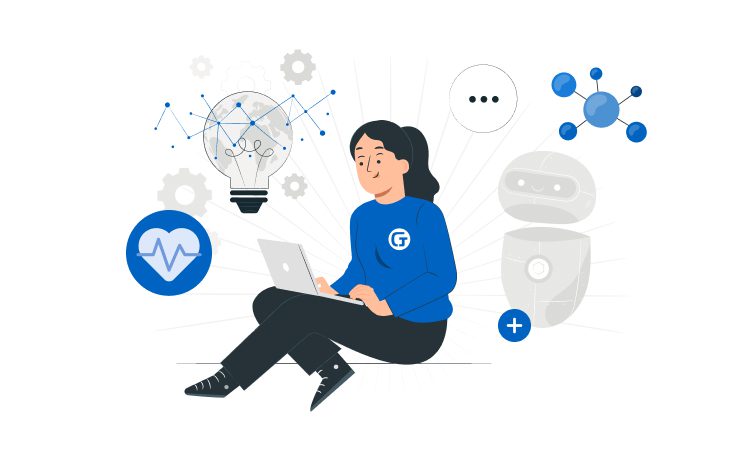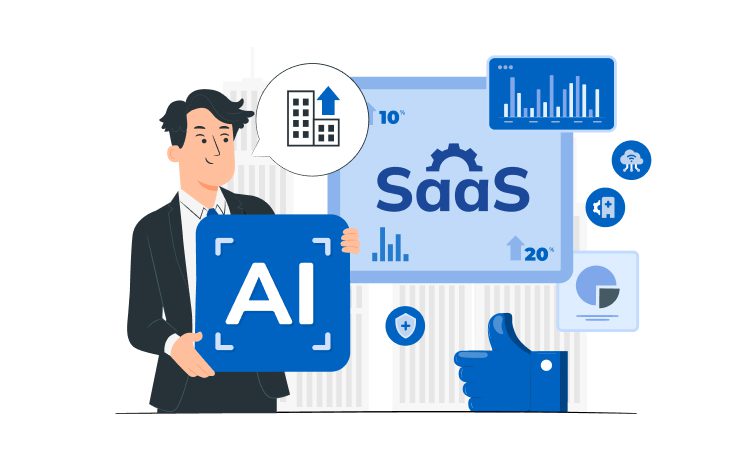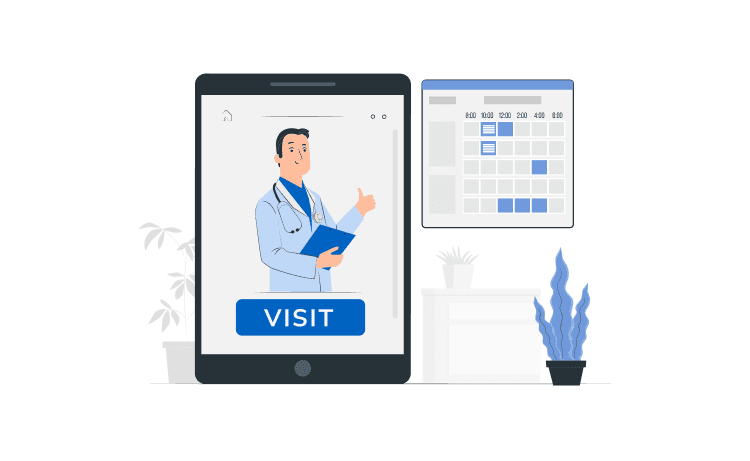
Doctor Appointment Scheduling App Development: Features & Solutions



Scheduling a doctor’s appointment is considered a chore by 31% of older and 62% of younger patients (source). The online doctor appointment systems not only make your customers less burdened and happier. They can also cut administrative costs, optimize the staff workload and eliminate human errors. In a world where people expect ultimate user-friendliness from all services, including healthcare, having online appointment scheduling software is not a whim but a must-have.
An appointment scheduling app would benefit your business, but you need to know where to start. You may need clarification on integrating it with your current hospital software. Fret not. Scroll on to find out:
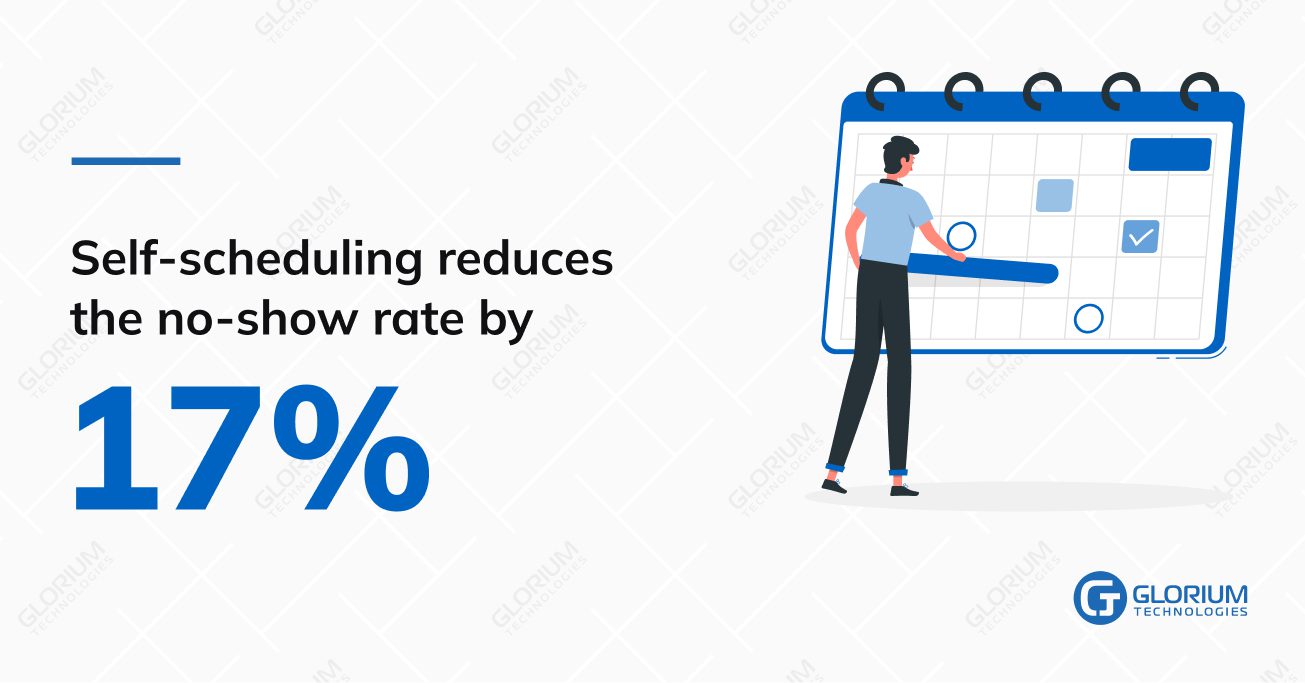
Source: Finances online
If you are cautious because the specific needs of your business require a tailored approach to app development, it’s understandable. Medical organizations are becoming more digitized and more autonomous every day and more actively involved not only with the existing apps but with the development of their apps.
Content
Booking apps have become extremely popular across all industries. Investments don’t lie: experts valued the online visits scheduling market at $223.83 million in 2019, but the projections say it will grow to a considerable $588.10 million by 2027.
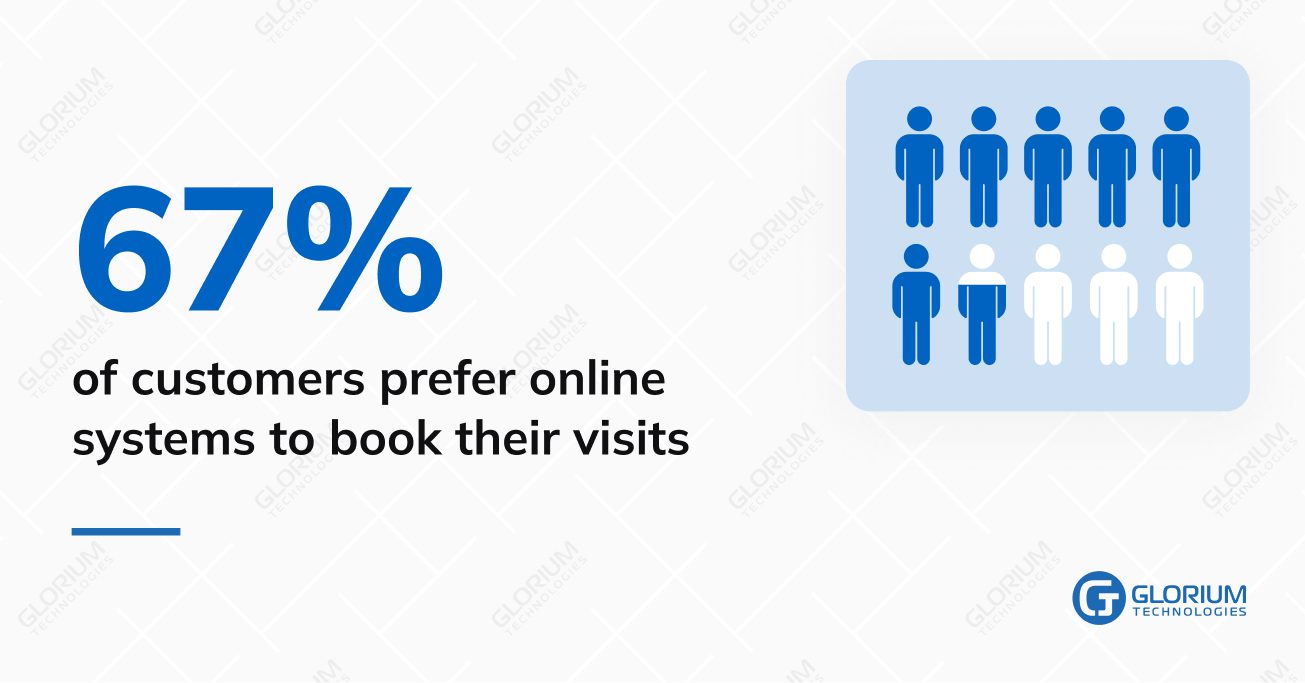
And out of all booked visits, 40% are done after working hours – which means missed opportunities if you only rely on your front desk staff to schedule the appointments.
When it comes to the development of your business appointment app, you can do it in several ways.
| Full control over your team | Long-lasting talent hunt |
| More efficient communication | Lack of flexibility in case of team extension need |
| Specific industry expertise | Higher costs |
| Increased security and data protection | Staff churn |
You hire developers to work within your business.
Pros:
Cons:
| Cost savings | Limited functionality |
| Quickstart | Limited integrations |
| Third-party integrations and automated workflows | Limited analytics options |
| Limited rescheduling |
Getting a subscription to an online scheduling platform (Calendly, TeamUp, Checkfront).
Pros:
Cons:
| Cost saving | Lack of subject-matter expertise |
| Customization | Less control |
| Faster time-to-market | Different time zones |
Hiring developers to create a scheduling tool tailored to the specifics of your business.
Pros:
Cons:
Readymade solutions seem lucrative as they enable getting a ready prototype with the necessary functionality promptly. Pitfall here is that the complexity and the cost of maintaining such a solution grows along with the increased business requirements for the product. The best practice we follow with most clients is to tailor an open-source solution to the specific project needs.
Thus we still get a customized solution pretty quickly yet save tons of resources to compare with the development from scratch. The latter is justified in rare cases when companies cannot utilize any open-source code according to internal policies and restrictions. For this category of clients, we have to go the extra mile developing something that already exists and is available to use.
Anna VoznaAccount Executive, Glorium Technologies
Though software development is not something medical organizations typically prioritize, hospital administrations should still have the idea. There is an entire range of benefits a hospital stands to gain by having a doctor booking app of its own. Let’s look deeper into these.
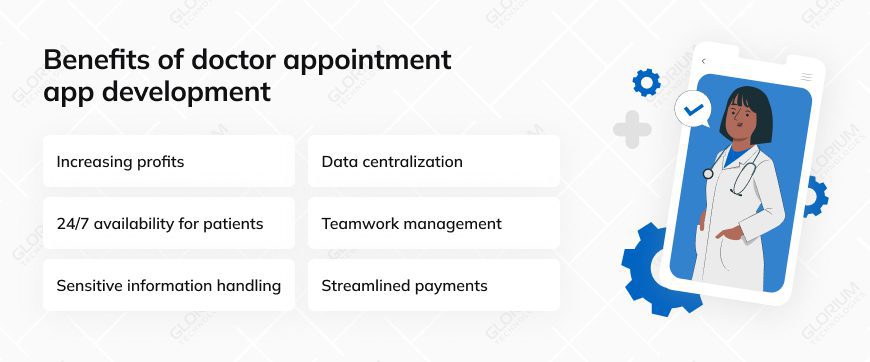
An independent doctor booking app impacts profitability. Fewer working hours for administration staff means you can allocate your resources elsewhere with better ROI. A more efficient process for booking, canceling, and rescheduling visits results in a better show rate and repeated visits. This type of automation also brings down overhead costs. Here are several numbers to convince you:
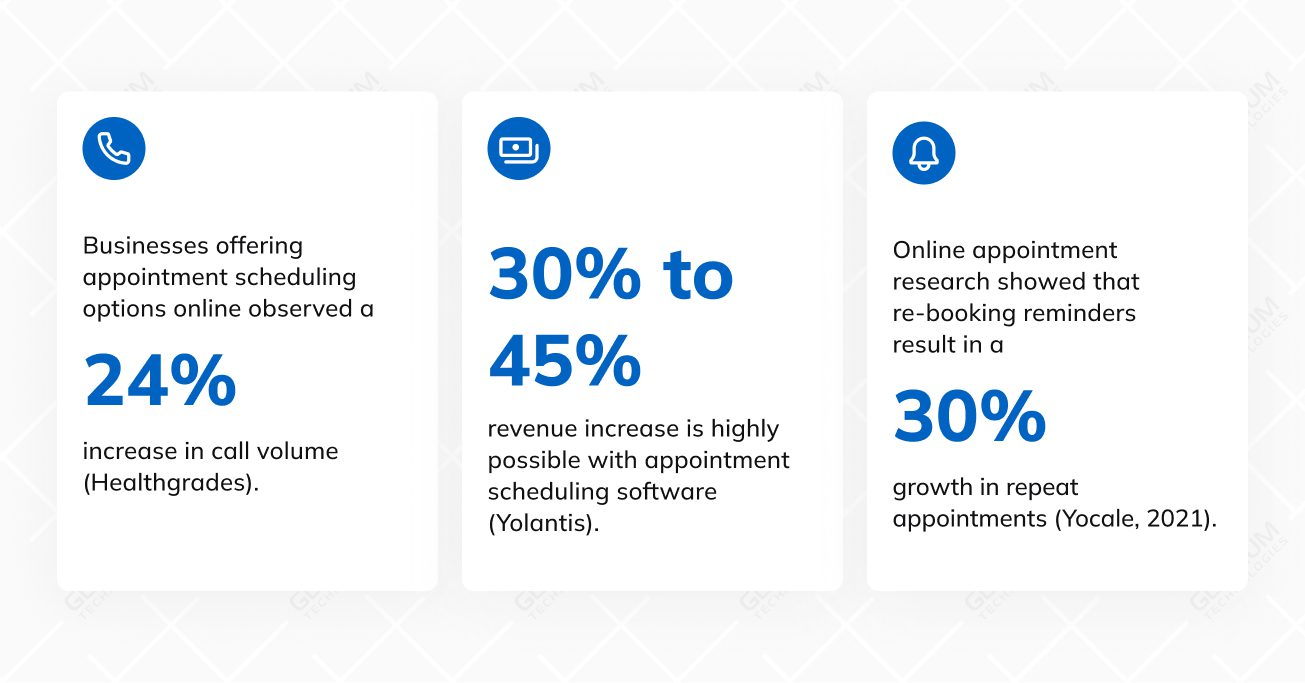
We mentioned already that 40% of the visit bookings occur after office hours. It makes sense, as many people arrange their medical needs during off-hours. If they have to wait till at least 8 a.m. to schedule an appointment, the chances are high that they will forget to do so or skip their chosen clinic in favor of the most convenient one (i.e., closer to their office.) Doctor appointment apps eliminate this inconvenience. Instant visit scheduling contributes to both patient confidence and loyalty.
An online booking system can be a convenient, discreet medium if your business involves sharing sensitive information when scheduling a medical visit. Age, weight, and detailed description of personal concerns are often easier for patients to write down than tell over the phone or face-to-face.

Patients feel more relaxed when providing a text description, as there is no sense of urgency. They are free to take as much time as they need to gather their thoughts and self-assess their condition correctly.
Doctor appointment scheduling apps always contain patients` confidential data – at least name and phone number, which is enough to identify a person, so this information is considered sensitive. Such solutions should comply with industry regulations to ensure their safety for users.
There are two scenarios for how we ensure the safety of a developed solution:
- The client holds responsibility for that and provides our development team with reviewed and verified requests and tasks.
- If a client cannot do that, we take accountability by involving an internal regulator. Dmitriy Stepanov, our CTO, validates every step as being compliant with all the rules and standards.
Valeriy Bobrovskiy.NET Developer, Glorium Technologies
Centralized appointment scheduling manages the data for multiple patients, doctors, clinics, specializations, and procedures in one touchpoint. This merge allows the system to ensure that all patients are checked in, treated, and checked out efficiently. It can also effectively manage cancellations and reschedules, as it has information about the opening hours of all branches. Having all information in one place helps to analyze it and use the insight to make services even more convenient and efficient.
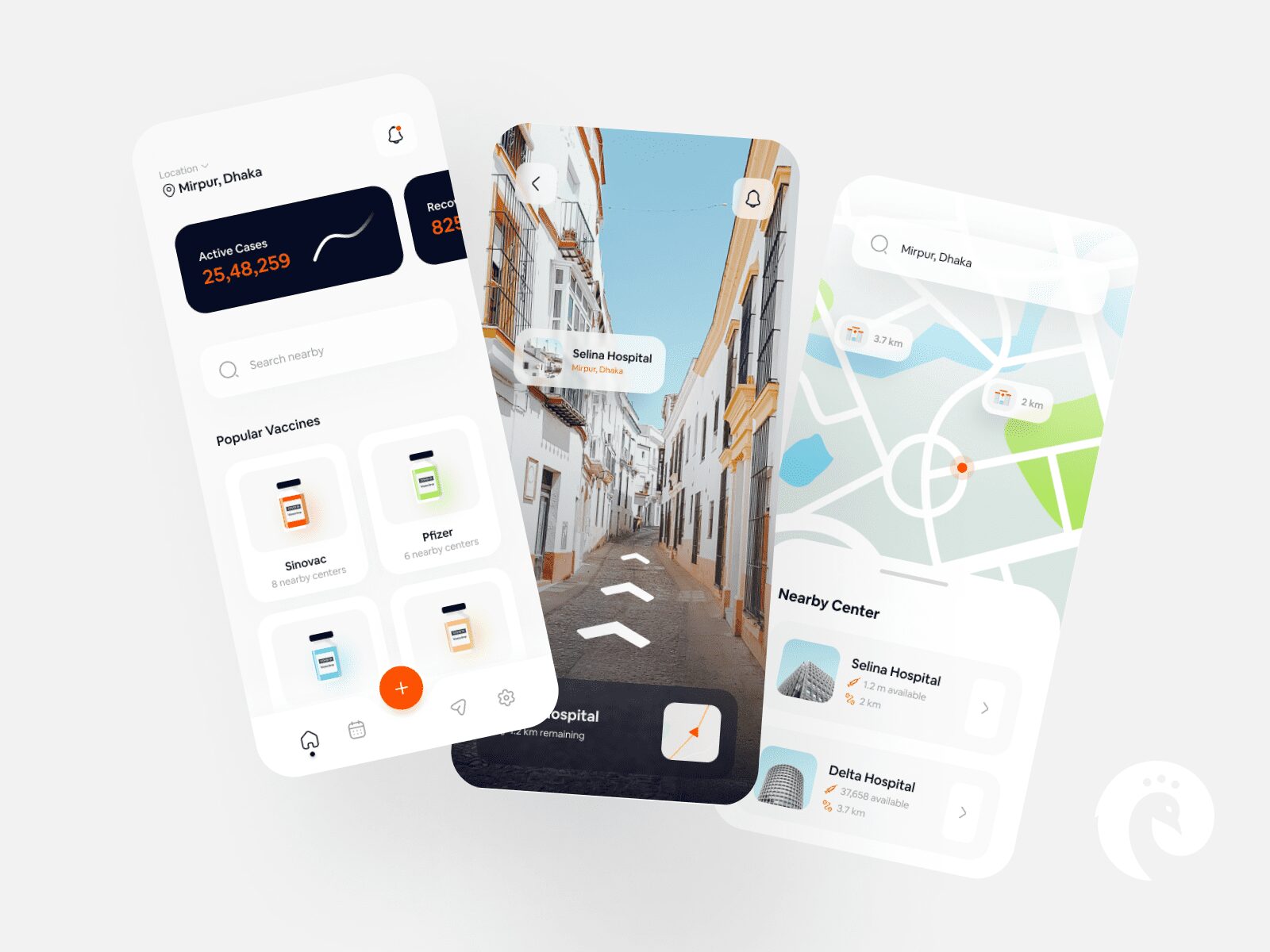
The more sophisticated systems can even integrate with the map applications and inform users exactly how much time they need to allocate for the traffic.
If you have a team of many professionals working across several locations, the automated scheduling app will help you arrange time efficiently. You will automatically see if any specialists overlap in the same branch and reschedule them.
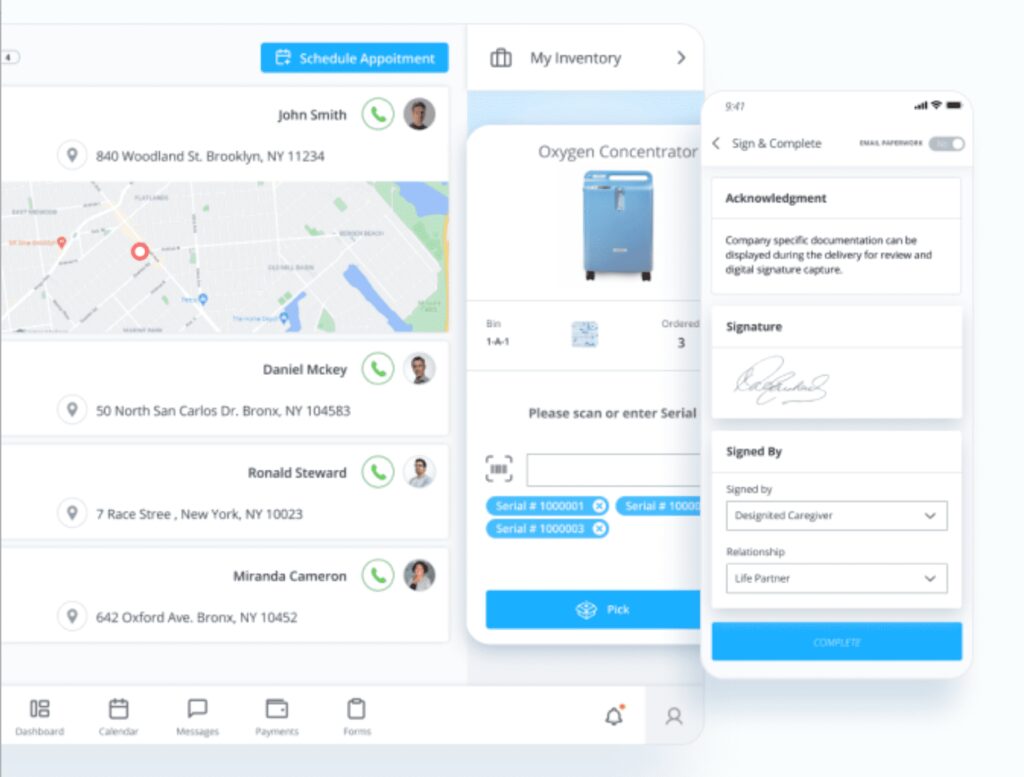
This feature is also convenient for “away” notifications. Say, if one of your orthodontists takes a two-week vacation, you can show it in the online scheduler. This way, patients will know to book the visits for this particular specialist when they’re back. It helps prevent double-booking and over-booking, eliminating the human error factor.
To get the most value out of what a doctor booking solution can offer to doctors and patients, developers should tailor its functionality to the most urgent needs of a particular hospital. For instance, a healthcare institution providing doctor house calls approached us with the problem that despite precise planning, medical professionals spent too much time commuting and thus could cover fewer patients than was demanded.
So we developed an online booking tool optimizing doctors` moving around through an efficient doctor-patient matching algorithm that analyzes the distance from a patient to a doctor, traffic on the route, locations for other doctor’s visits for the day, and other criteria. Such solutions are complex due to many integrations, though they make a real difference in hospital operations.
Tetiana SkybinskaAutomation QA Engineer, Glorium Technologies
Not only automated scheduling lets you reduce the financial losses from missed opportunities. It also makes it easier for your staff to prepare for the payment processing depending on the patient’s payment preferences and insurance provider.
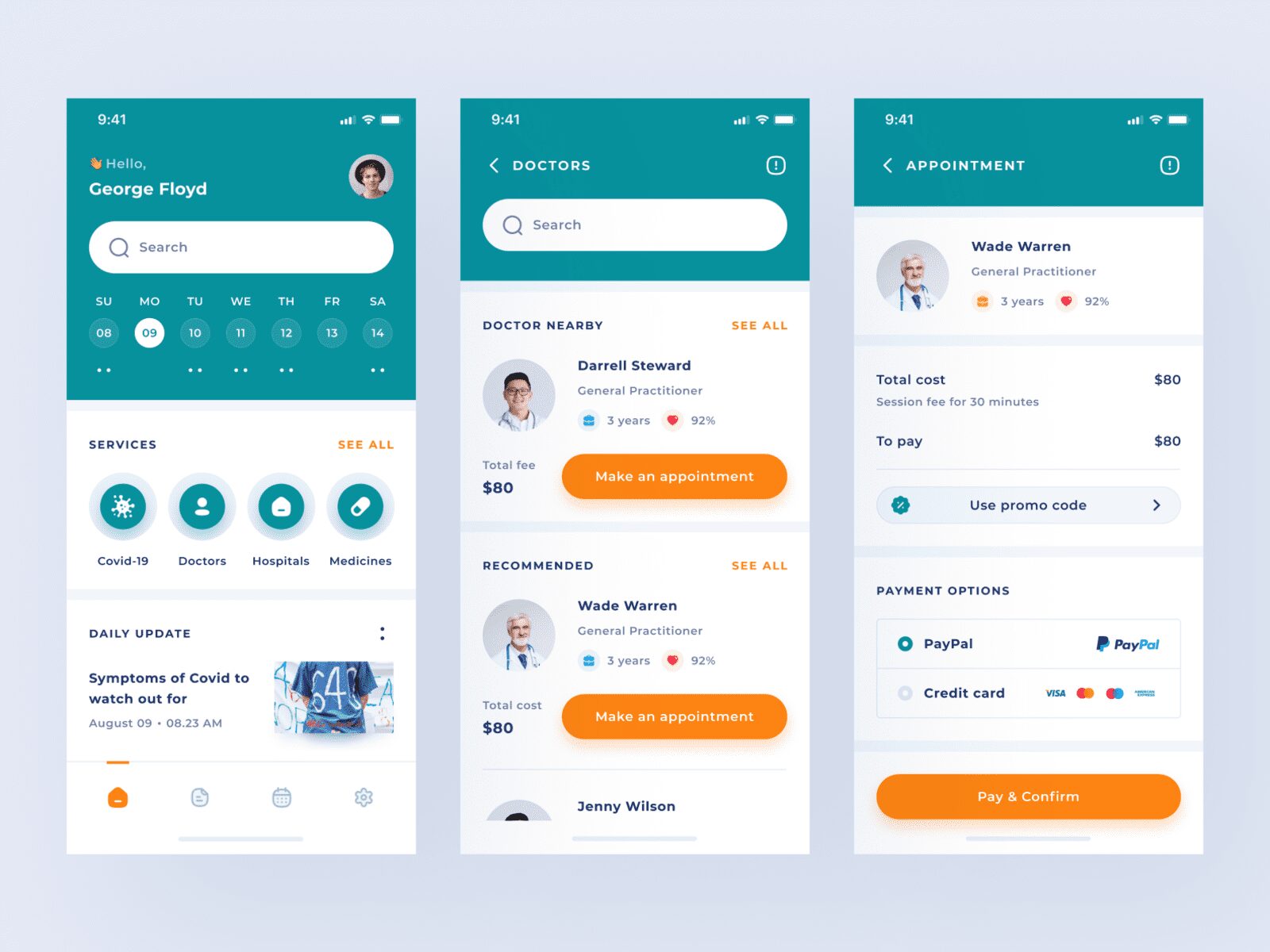
Some appointment scheduling apps even let you collect a deposit at the time of booking or have clients pay for their services upfront. Integrate your scheduler with the invoicing and payment system, creating a seamless process for your patients and employees.
Creating a custom doctor appointment scheduling app is a comprehensive process that begins with thoroughly analyzing healthcare providers’ needs.
This includes understanding appointment types, patient volume, and necessary integrations with existing systems. The app’s development focuses on incorporating essential features like patient registration, scheduling, reminders, and calendar integration, all tailored to the specific needs of the healthcare sector.
The design phase prioritizes a clean, intuitive user interface and a seamless user experience catering to diverse users. The technical stack for this app is carefully selected to support its functionality. Front-end development might use technologies like JavaScript, React.js, or Angular. At the same time, the back-end could be built using Python, Node.js, or Ruby on Rails, with database management handled by SQL or NoSQL systems. Swift or Objective-C is used for iOS, and Kotlin or Java for Android for mobile app development. The app also integrates with various APIs for EHR/EMR systems, payment gateways, and utilizes cloud services like AWS, Azure, or Google Cloud Platform.
The development process follows an agile methodology, ensuring flexibility and efficiency, with rigorous functionality, usability, and security testing. A key development aspect is ensuring compliance with healthcare regulations such as HIPAA and GDPR, and implementing robust data privacy measures like SSL/TLS and OAuth.
Once developed, the app’s deployment can be cloud-based or on-premises, emphasizing regular maintenance for security, feature enhancements, and performance optimization. User feedback is crucial for continuous improvement post-deployment, ensuring the app evolves according to healthcare providers’ and patients’ changing needs. This holistic approach ensures the development of a robust, user-friendly, and compliant scheduling app that meets the dynamic requirements of the healthcare industry.
Glorium Technologies, boasting over 13 years of expertise in the healthcare domain, is adept at developing a wide range of healthcare solutions. Our seasoned team combines deep industry knowledge with cutting-edge technology to create custom solutions tailored to each client’s unique needs. Whether it’s developing intricate healthcare systems, innovative patient care applications, or comprehensive data management tools, Glorium Technologies is equipped to handle any challenge in the healthcare sector, delivering effective and transformative solutions.
Glorium Technologies has successfully developed a platform that offers users the choice to schedule appointments either through its interface or by integrating effortlessly with external providers. This platform is further enhanced by Glorium Technologies’ proficiency in telehealth, enabling web conferences for up to 2,000 participants, a feature particularly useful in large-scale medical consultations and seminars.
The platform’s adherence to HIPAA compliance, without any limitations on scalability, underscores the company’s commitment to data privacy and addresses the evolving demands of healthcare professionals. It provides a stable, cross-platform video streaming service, essential for patient and dental professional interactions. This service is supported by a
WebRTC framework with STUN/TURN server routing, adaptable bandwidth and video quality controls, and robust streaming capabilities over cellular connections. It is accessible through both web and mobile applications.
The platform’s key features include video conferencing specifically designed for dental care professionals, integration with a bespoke intraoral camera, an efficient scheduling mechanism, virtual waiting rooms, and secure messaging. Additionally, it offers HIPAA-compliant storage options for all conference media, including videos, screenshots, and chat logs, ensuring a comprehensive and secure telehealth solution.

The scheduling application must base on the calendar. Aside from the days and working hours, it should be able to track the national and public holidays.
In some cases, it will be beneficial to sync it with the practitioners’ calendars to avoid overlaps.
Focus on people.
Remember that patients come from different age groups and professions with varying levels of digital literacy. The user experience of a doctor appointment mobile app must be accessible to every demographic.
Create a personal cabinet containing the user’s name, surname, address, phone number, insurance details, list of the doctors and clinics they attend, photos, and other important information.
A doctor appointment app should always be a collaborative tool. At the very least, it must integrate with the employee calendar for the included vacation planning. Depending on the functionality, it can also integrate with invoicing, prescriptions, CRM, and other parties.
A separate field for a doctor to take the health records in your app will benefit both sides. Patients will appreciate receiving the notes and short recap in the app after the visit.
Some features like patient’s and doctor’s profiles, prescription histories, contact info, etc., should be available offline. It will ensure that patients can access all the necessary information without internet access.
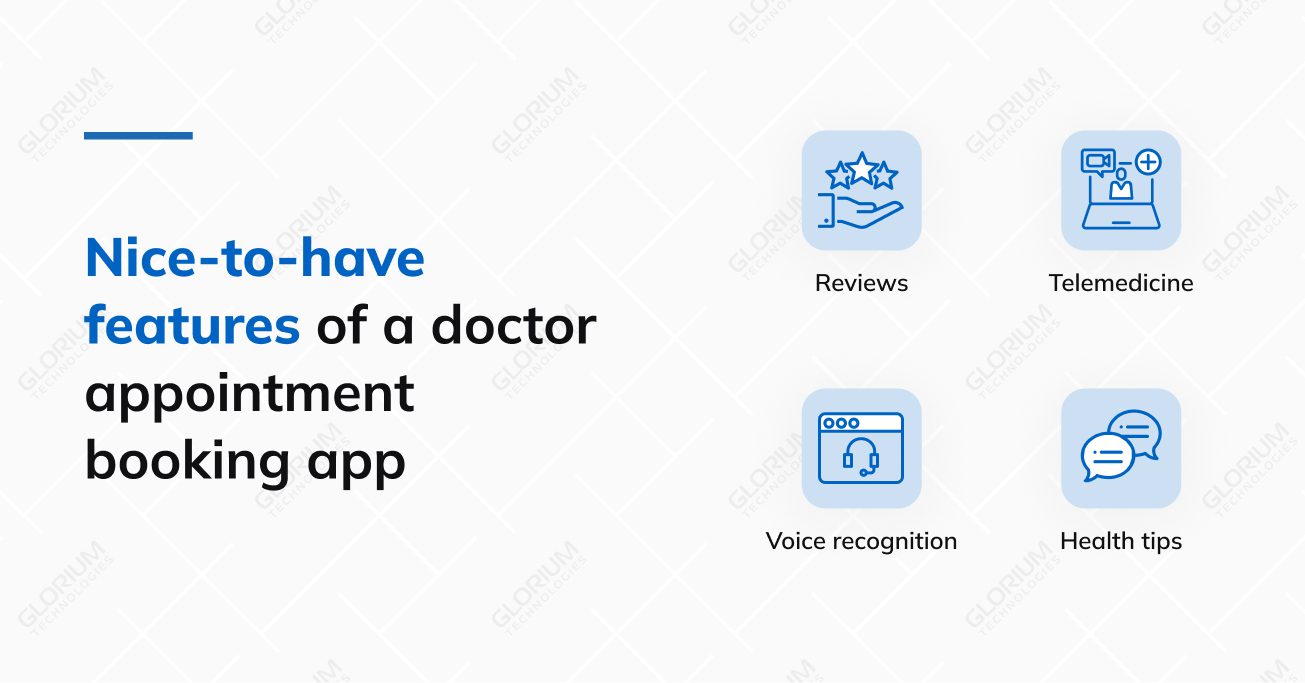
Most customers claim that reviews are crucial when deciding on a visit to the clinic. Include the review section in your app and let all verified customers leave their recommendations for the others.
If your business provides telemedicine services, having them built-in within your app will simplify life for everyone and provide your patients with a seamless experience. Read more about the specifics and integrations of telemedicine solutions here.
If your clinic has a specialization, show your customers some extra care with helpful content for their health. Add the approved professional advice on how to keep up their dental health, mental balance, or skin youthfulness.
It is often convenient for people to schedule with voice assistants, and doctor appointments are no different. Consider including the voice recognition feature in your application, and make sure to adjust your voice-first SEO to grab the attention and appreciation of early adopters in the field.
Your doctor appointment app is the extension of your healthcare business. Make sure it inherits your business’ brand colors, looks clean and straightforward, and can easily find everything. Simplicity is the key. In terms of design, you’d want to use icons, clear layouts, and photos of the doctors for better perception.
HIPAA compliance in the US, GDPR in the EU, PIPEDA in Canada, and so on — are the starting point for medical organizations considering ANY software for their patient processes. All data protection standards applicable to document workflows in a medical organization must apply to the software in use. If in doubt, consult a legal professional.
Having healthcare technology solutions development as one of our business focuses, we must establish internal procedures and principles to ensure all projects we deliver are safe and correspond to industry standards.
All the newcomers within the onboarding process must learn the ropes of GDPR, undertake educational sessions on HIPAA compliance regulations, and pass a test through Drata Agent software;
only after that are experts allowed to proceed to project work. All the hardware and software that we use are also HIPAA-compliant. Glorium Technologies is ISO 9001, 13485, and 27001 certified, which proves we follow the highest industry standards.
Anna VoznaClient Success Manager, Glorium Technologies
Testing is one of the essential steps in medical app development and consists of two parts.
First, you need to decide what goals you want to reach with the application. Is it the reduction of no-shows or saving time for your staff? Do you aim to streamline the payments or coordinate several clinics?
Based on it, you will decide on the priority features for your future app.
When you know what you are looking for, consider specific industry requirements:
Then you will need a developer with experience in this field who knows the specifics of the market and can start work on the project immediately without digging into the industry’s nuances.
Lastly, reliable and stable technologies will provide high productivity and security to the digital solution.
Are you looking for a developer for doctor appointment app development? Choose a company with vast experience in the healthcare sector.
The Glorium Technologies team has 10+ years of experience developing apps for the healthcare sector. As of today, over 5M patients are using our apps regularly. Glorium’s areas of expertise include HIPAA and ISO 13485 compliance, telemedicine solutions, and online diagnostics tools.
We have helped many medical organizations streamline the doctor appointment and scheduling processes, minimizing queues and growing revenues.
Contact us today, and let’s make your patients happy together.
First of all, you need to consider a number of specific industry requirements for the profile IT product. For example:
It is also important to hire a developer with experience in this field who knows the specifics of the market and will start working on the project immediately. Otherwise, you will lose time and money explaining the task and the industry’s nuances.
In addition, you will need a number of reliable and stable technologies that will provide high productivity and security to the digital solution.
The algorithm of such apps is relatively simple and has the following structure of actions:
Even an architecturally simple app is built in such a way as to ensure that all participants have access to key functions.
For a physician, it’s:
For the patient, the options are slightly different:
Online appointment apps can combine other features with access to the EHR and EMR. They expand the functionality and scope of the project. At the same time, they require more serious technologies and algorithms to ensure privacy.
As a rule, the cost varies depending on a number of factors:
The median price of such a project can be as much as $10,000-$15,000, or as much as $500,000-$100,000, or even more. The smaller the capabilities of a digital product, the lower its price, and vice versa. The pricing is also influenced by the industry’s specific technologies, the performer’s geolocation, and algorithms to ensure security and privacy.
Each project is evaluated individually. Do you want to calculate how much the app will cost you? Get in touch with our manager.
As with cost, development time varies due to some factors:
For a small project, the working time is about 5-6 months, for a medium-sized project 10-12 months, and for a large-scale project 15+ months. You should also take into account the time for obtaining licenses and publishing the app in the stores.

